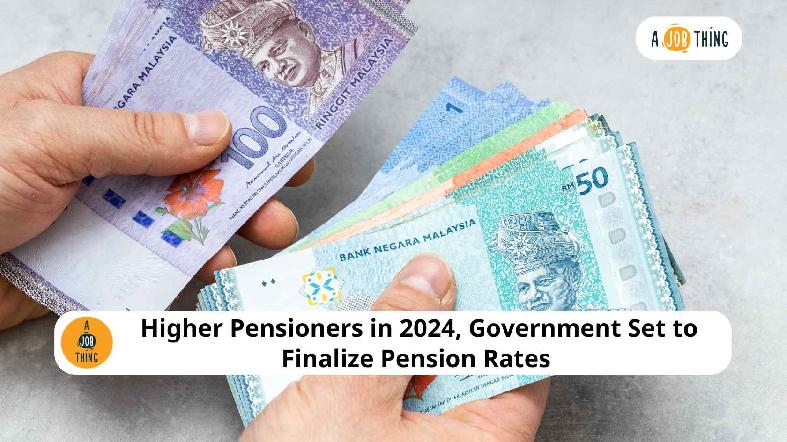
Higher Pensioners in 2024, Government Set to Finalize Pension Rates
Are You Hiring?
Find candidates in 72 Hours with 5+ million talents in Maukerja Malaysia & Ricebowl using Job Ads.
Hire NowThe Malaysian government is finalizing new pension rates for retirees under the updated Public Service Remuneration System (SSPA).
These changes aim to improve benefits for retired civil servants, ensuring their pensions align with current pay scales.
However, challenges remain for those who retired before 2013.
Key Pension Adjustments and Phased Increments
The government has announced a 7% to 13% increase in pensions for over 900,000 retirees.
This adjustment is part of the SSPA and will be implemented in two phases.
The first phase, beginning in December 2024, will provide an 8% increase for lower-tier civil servants and a 4% increase for top management.
The second phase, scheduled for January 2026, will add another 7% and 3% for these respective groups.
While these adjustments are a positive step, the government is still addressing concerns from pensioners who retired before 2013.
Their pensions are calculated based on outdated salary scales, leaving them at a disadvantage compared to post-2013 retirees who benefit from updated rates.
Legal Challenges and Federal Court Rulings
The Federal Court recently ruled that the 2% annual pension increment introduced in 2013 was unconstitutional.
The court ordered that pensions should instead be tied to the current salary scales of active civil servants.
This decision has prompted the government to revise its policies, but many retirees still face delays in receiving their rightful adjustments.
Several lawsuits are ongoing, with retirees and even military personnel demanding fair pension recalculations.
Employers who support or employ retired civil servants must remain aware of these legal developments, as they could impact retirement benefits and compliance requirements.
Implications for Employers
Employers working with retired civil servants should carefully evaluate how these changes may affect their financial and retirement policies.
For instance, businesses offering supplementary pension benefits might need to adjust their offerings to reflect the government’s revised rates.
Additionally, employers can play a supportive role by helping retirees navigate tools like the MyPesara app, which provides updated pension information.
Employers should also communicate these changes proactively to ensure retirees understand their entitlements.
Challenges Faced by Pre-2013 Retirees
Despite the announced pension hike, retirees from before 2013 are particularly disadvantaged.
Their pensions are still calculated based on basic salaries that were last revised over a decade ago.
For example, a retired teacher from 2010 reported only an RM250 increase in monthly pension payments, far less than what they would receive under the new SSPA-adjusted rates.
This issue highlights a significant gap in the system, where pre-2013 retirees are unable to fully benefit from the revised remuneration structure.
Employers should be prepared to address these concerns when working with affected retirees.
Steps Employers Can Take
To navigate these changes effectively, employers can:
- Stay Informed: Keep track of government announcements and legal updates regarding pension rates.
- Communicate Clearly: Provide regular updates to retired employees about the new rates and benefits available.
- Adjust Policies: Review and update retirement-related policies to ensure alignment with the latest government revisions.
By taking these steps, employers can foster a positive relationship with their retired employees while ensuring compliance with evolving regulations.
Conclusion
The government’s pension adjustments under the SSPA represent a significant improvement for many retirees.
However, the unresolved challenges faced by pre-2013 retirees highlight the need for continued advocacy and policy refinement.
By staying proactive, businesses can maintain strong relationships with their workforce and ensure fairness in retirement benefits.
Are you hiring in 2025?
Start your hiring journey with Ajobthing today! Post your job ads, connect with top talents, and streamline your recruitment process with our easy-to-use platform.
Read More:
- Can we retain staff over the age of 60 in Malaysia?
- Malaysian Employment Act 1955: Key Provisions Every Employer Must Know
- Malaysia National Registration Identity Card (NRIC): A Guide for Employers
- What is the TIN Number in Malaysia?
- Long Weekend 2025 List in Malaysia
- Public Holidays in Malaysia for 2025: Complete List and Dates

